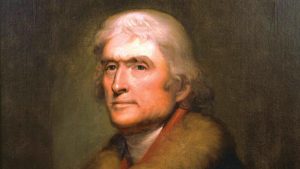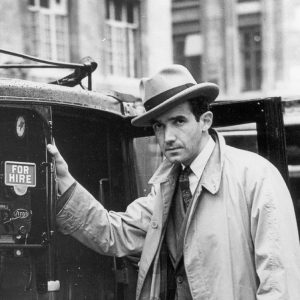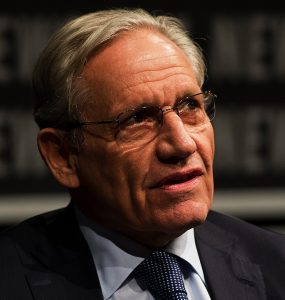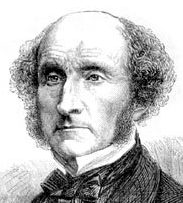The Media is Not Trusted: Beginnings
Thomas Jefferson famously wrote in 1787 that “the basis of our governments being the opinion of the people, the very first object should be to keep that right; and were it left to me to decide whether we should have a government without newspapers or newspapers without a government, I should not hesitate a moment to prefer the latter.” Yet, twenty years later as President, and on the other side of vituperative journalists, he stated: “Nothing can now be believed which is seen in a newspaper. Truth itself becomes suspicious by being put into that polluted vehicle.” Jefferson did not trust the press in 1807. Today, the media is not trusted by the public.

Why is the media not trusted today anymore than by Jefferson during his presidency? We have an idea or two. But let’s look at the data first.
Trust in the Media at an All-Time Low: Empirical Data
The data is inescapable and disturbing. Since Gallup began polling the question in 1971 of how much trust and confidence the public has in the media, never has that trust been lower. Today, only 32% of Americans have a “great deal/fair amount” of trust and confidence in the media, down from a high of 72% in 1976. This year saw an abrupt eight percentage point decline in trust, accelerating what had been a steady decline from the mid-5os in 2001. The media is not trusted.
The lack of trust and confidence exists across all political persuasions. Republican confidence has fallen to a meager 14% from 49% in 2002 and 32% in 2015. And although Democratic trust and confidence logs in at a much higher 51%, that still reflects a fall from 70% in 2005. The views of Independents also register similar declines, from 49% in 2005 to just 30% today.
Perhaps even more distressing, the decline within the 18 to 49-year-old age group is also precipitous, with a “great deal/fair amount” of trust and confidence at just 26% now, down from 45% in 2005. The 5o and over group also logs in at just 38%. The message remains clear for all age groups. The media is not trusted.
The Problem Identified: Why the Media is Not Trusted
The heart of the matter is bias. It is those journalists (we use that term to encompass all reporting media, ex-editorialists) who present “opinions” as “facts.” Journalists who embed their partisanship and passion inside of “objectivity.” Journalists who without apology selectively report such “facts” as may reflect their own moral compass, and consciously omit the rest.
We are all susceptible to self-biases, if only sub-consciously. Awareness of bias is a prerequisite to striving for fairness. None of this is new. It has been the challenge for journalists since the gifting of a free press. After centuries of American journalism, with the collected knowledge of humanity at our fingertips, the press is shackled in chains of disrepute and shame.
Why Bias is Prohibited
Journalists are chroniclers of facts. They are reporters of facts. They are compilers of facts. Their primary job is to provide information, unabridged data, for their readers and listeners to digest and assimilate. They are not historians (we delve more deeply into this distinction below). Men who would be narrators of facts, according to Scottish philosopher David Hume, must have a character “of such undoubted integrity as to place them beyond all suspicion of any design to deceive others.”
“Character” in this context means impartiality. It means presenting information in a neutral way. It means avoiding the use of language and words that impregnate unabridged data with the moral views or viewpoint of the journalist. When the journalist’s bias bleeds into recited facts, than “facts” lose their integrity. The reader is compromised. He is unable to discern accuracy. Effectively, the journalist’s morality assaults the reader who seeks only exact and complete information. This assault, repugnant to the core, is increasingly evident and leads to reader disdain and contempt.
As the renowned journalist Edward R. Murrow said: “To be persuasive we must be believable; to be believable we must be credible; to be credible we must be truthful.” Credibility requires impartiality. It requires integrity.

Today’s World Contributes to the Problem – But Only By Degree
The world is awash in information. In written reports, video reports, blogs, tweets, posts, and so on. As Bob Woodward has said, “we’re drowning in data that has no meaning.” Indeed, so much of the information has little meaning or depth. It is as if the world’s great artists were forced to convey the purpose of life through painting with stick figures. The paintings would lack context, detail and informative content. Deeper meaning would be indiscernible. If the great museums dedicated only one room in their recesses to the works of the old masters, then most visitors would never see more than the stick art. Their experience would be devoid of the context and content that would convey the artists’ perception, motivation and intention.

For most of the public, this is today’s world. Journalists fail to immerse themselves in their subjects, fail to saturate their subject matter with a fullness of context, fail to give factual detail. They convey their own viewpoints, occasionally by directly disavowing facts that impair their narratives. Often they promote their viewpoints indirectly, using a vocabulary of advocacy, disdain or personal attack. They selectively convey only those subsets of facts that reflect their viewpoints. In the process, they compromise their charge as chroniclers and reporters.
Perhaps the justification for these faults lies in the world of the modern media. But we doubt it. The reasons for compromising journalistic integrity are as old as the printing press itself — a desire for fame, to “scoop” the competitors, for personal profit and aggrandizement, for persuasion.
Journalists are not Historians
Readers are partly to blame. But only partly. Readers are lazy and unwilling to read. We wish to be entertained more than we wish to be educated. We believe that reading a large volume of small snippets of information makes us knowledgeable and informed. As Jefferson said, “where the press is free, and every man able to read, all is safe.”
But we no longer know how to read, and all is not safe. Though we are partly to blame, the greater share of the blame falls on the journalists, who have lost their collective way.
Our journalists mistake themselves as historians. This is no trivial error. We grant historians the right, the responsibility, to imbue their narratives with moral perspectives and implications. They tell the story of how we came to be who we are, and why. Their human values must impact the facts they select to detail and analyze in composing their narratives. They inculcate their sense of significance to those facts. They must take a perspective as to what matters and why. And what they select can only come from their sense of morality; in this, they cannot be neutral.
Journalists, however, are not charged with this responsibility. Nor should they be. Their job is to compile and then report data and information to readers. That means all the relevant data. It is not their role to selectively report. It is not their role to write narratives imbued with their moralities and worldviews. Readers, historians and editorialists can impart their own sense of morality on top of that information. It is for them to form the narratives. Journalists have increasingly assumed a role not assigned to them. As a result, the media is not trusted.
Our Liberty is Threatened by a Press That Loses Its Way
We bring in Jefferson again for two thoughts: “The press is impotent when it abandons itself to falsehood.” Falsehood is but a matter of degree, whether it be by omission of facts or distortion. The outcome in each instance is the same – the press becomes impotent. Falsehood casts the public adrift, threatening the fabric of freedom. Falsehood in the larger sense is why the media is not trusted.
The lost sense of journalistic duty and responsibility offends. Readers daily defend themselves against the shrill and bombast on-line, across the air and in the written press. We have become numb to the point of contempt. Our journalists distort, manipulate and censure. As a result, our liberty is jeopardized. For there is no freedom of the press unless the press reports faithfully and completely.
The falsehood to protect against in Jefferson’s time came from the governing. It was the press that protected us:
Our citizens may be deceived for awhile, and have been deceived; but as long as the presses can be protected, we may trust to them for light.
Perish that, in today’s world, we may now need protection from the press.

